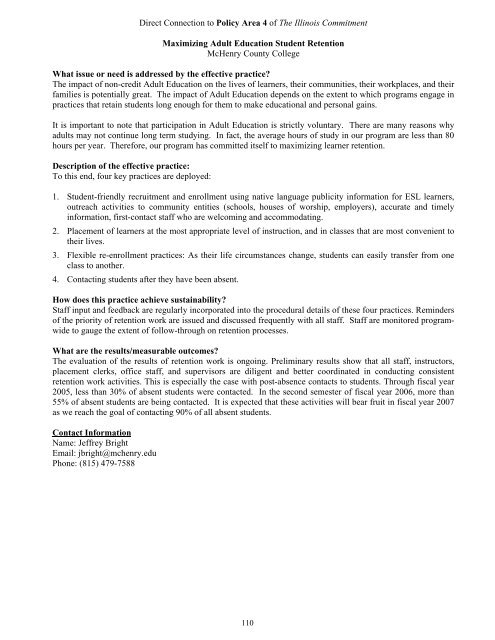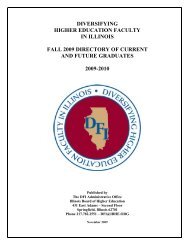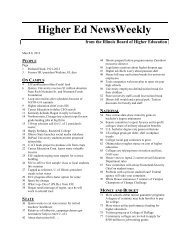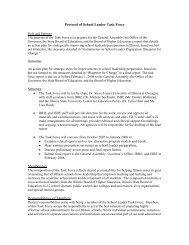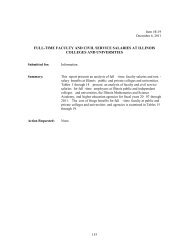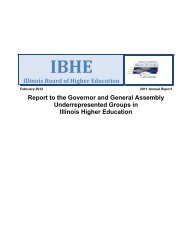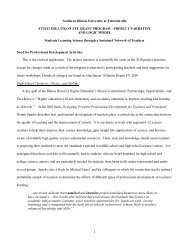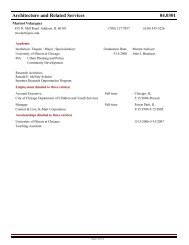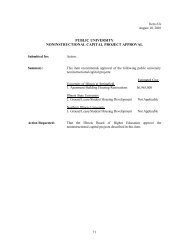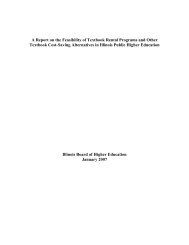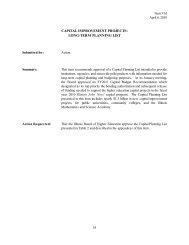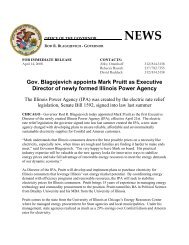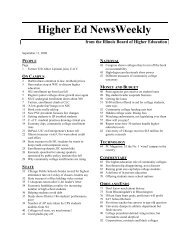Title of Effective Practice: - California Postsecondary Education ...
Title of Effective Practice: - California Postsecondary Education ...
Title of Effective Practice: - California Postsecondary Education ...
You also want an ePaper? Increase the reach of your titles
YUMPU automatically turns print PDFs into web optimized ePapers that Google loves.
Direct Connection to Policy Area 4 <strong>of</strong> The Illinois Commitment<br />
Maximizing Adult <strong>Education</strong> Student Retention<br />
McHenry County College<br />
What issue or need is addressed by the effective practice?<br />
The impact <strong>of</strong> non-credit Adult <strong>Education</strong> on the lives <strong>of</strong> learners, their communities, their workplaces, and their<br />
families is potentially great. The impact <strong>of</strong> Adult <strong>Education</strong> depends on the extent to which programs engage in<br />
practices that retain students long enough for them to make educational and personal gains.<br />
It is important to note that participation in Adult <strong>Education</strong> is strictly voluntary. There are many reasons why<br />
adults may not continue long term studying. In fact, the average hours <strong>of</strong> study in our program are less than 80<br />
hours per year. Therefore, our program has committed itself to maximizing learner retention.<br />
Description <strong>of</strong> the effective practice:<br />
To this end, four key practices are deployed:<br />
1. Student-friendly recruitment and enrollment using native language publicity information for ESL learners,<br />
outreach activities to community entities (schools, houses <strong>of</strong> worship, employers), accurate and timely<br />
information, first-contact staff who are welcoming and accommodating.<br />
2. Placement <strong>of</strong> learners at the most appropriate level <strong>of</strong> instruction, and in classes that are most convenient to<br />
their lives.<br />
3. Flexible re-enrollment practices: As their life circumstances change, students can easily transfer from one<br />
class to another.<br />
4. Contacting students after they have been absent.<br />
How does this practice achieve sustainability?<br />
Staff input and feedback are regularly incorporated into the procedural details <strong>of</strong> these four practices. Reminders<br />
<strong>of</strong> the priority <strong>of</strong> retention work are issued and discussed frequently with all staff. Staff are monitored programwide<br />
to gauge the extent <strong>of</strong> follow-through on retention processes.<br />
What are the results/measurable outcomes?<br />
The evaluation <strong>of</strong> the results <strong>of</strong> retention work is ongoing. Preliminary results show that all staff, instructors,<br />
placement clerks, <strong>of</strong>fice staff, and supervisors are diligent and better coordinated in conducting consistent<br />
retention work activities. This is especially the case with post-absence contacts to students. Through fiscal year<br />
2005, less than 30% <strong>of</strong> absent students were contacted. In the second semester <strong>of</strong> fiscal year 2006, more than<br />
55% <strong>of</strong> absent students are being contacted. It is expected that these activities will bear fruit in fiscal year 2007<br />
as we reach the goal <strong>of</strong> contacting 90% <strong>of</strong> all absent students.<br />
Contact Information<br />
Name: Jeffrey Bright<br />
Email: jbright@mchenry.edu<br />
Phone: (815) 479-7588<br />
110


